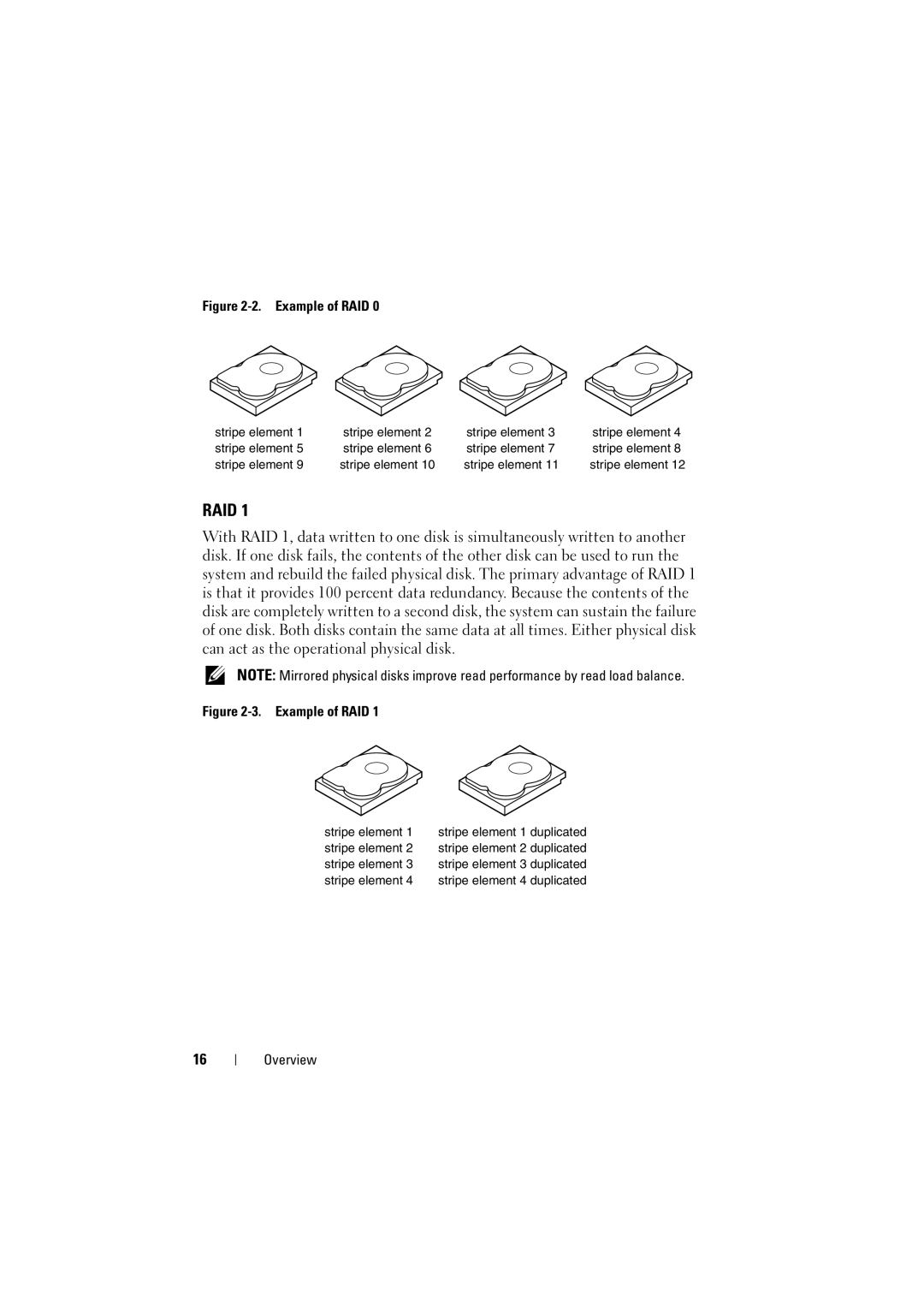
Figure 2-2. Example of RAID 0
stripe element 1 | stripe element 2 | stripe element 3 | stripe element 4 |
stripe element 5 | stripe element 6 | stripe element 7 | stripe element 8 |
stripe element 9 | stripe element 10 | stripe element 11 | stripe element 12 |
RAID 1
With RAID 1, data written to one disk is simultaneously written to another disk. If one disk fails, the contents of the other disk can be used to run the system and rebuild the failed physical disk. The primary advantage of RAID 1 is that it provides 100 percent data redundancy. Because the contents of the disk are completely written to a second disk, the system can sustain the failure of one disk. Both disks contain the same data at all times. Either physical disk can act as the operational physical disk.
NOTE: Mirrored physical disks improve read performance by read load balance.
Figure 2-3. Example of RAID 1
stripe element 1 stripe element 2 stripe element 3 stripe element 4
stripe element 1 duplicated stripe element 2 duplicated stripe element 3 duplicated stripe element 4 duplicated
16
